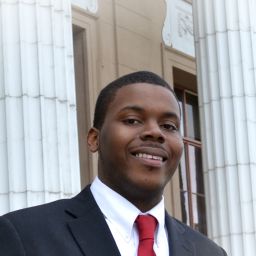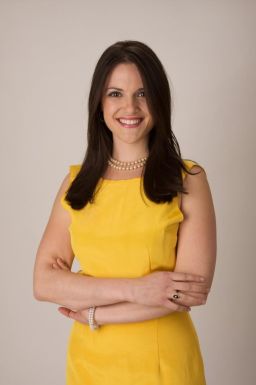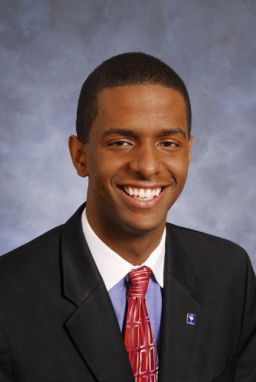Story highlights
CNN Opinion asked 10 millennials to weigh in on how well 2016 presidential candidates reflect the priorities of their generation
They said the candidates had a long way to go to address concerns about jobs, education, immigration, inequality and more
CNN asked millennial voters from a range of backgrounds to weigh in on whether, and how well, the 2016 presidential candidates are reflecting the priorities of their generation – the largest and most diverse demographic cohort in American history – as they make their case to voters. The opinions expressed are solely those of the authors.
Elizabeth Elizalde, 22, is a New York-based journalist and a former CNN en Español intern. Follow her on Twitter @EElizalde5.

I’m a 22-year-old Latina living in New York City, and as a recent college graduate, I know the struggle of making ends meet. My college expenses kept me up at night, especially the time I paid $120 for a book, $116 for my MetroCard and $840 for an extra class. I worked multiple jobs, but by the end of a semester, I would still be broke. It was worth it for my degree, but would I have had a better educational experience if money worries hadn’t been so overwhelming?
I want to see a change in college costs but have heard little on this so far. Democratic candidate Bernie Sanders proposes a tuition-free community college and raising the minimum wage to $15. But I’m unsure if his plan would create jobs with better salaries for young people. Jobs are a big concern.
Immigration reform is another issue that hits close to home. Born to an Ecuadorian mother and a Mexican father – both American citizens – I know how hard my parents fought to give me a better life. Some candidates like Donald Trump want to deport 11 million undocumented immigrants but don’t consider the damage to our economy and taxpayers’ pockets.
So far? Sen. Marco Rubio of Florida, the youngest candidate and the son of Cuban immigrants, seems to identify with millennials like me because he knows what it means to live from “paycheck to paycheck.” On this score, he gets it.
As the presidential race heats up, the candidates remain focused on petty infighting. I want to hear less bickering and more about their policies. My generation and our children’s future depend on their decisions.
—————————————————–
Michael Tubbs, 25, is a Democratic council member for the city of Stockton, California. Follow him on Twitter @michaeldtubbs

In 2012, then 22, I decided to move back to Stockton, a city that had suffered back-to-back years of record homicides, had an unemployment rate of 20%, was home to some 30,000 children living in poverty and had just declared municipal bankruptcy. We need presidential candidates to talk about strategies to help cities such as mine across the country, which are struggling to reinvent themselves, and to usher in a new era of civic innovation.
The presidential candidates have talked of urban violence, but not nearly enough about structural violence, defined by sociologist Johan Galtung as the “avoidable impairment of basic human needs.” Every day in this country, children go to bed hungry and go to sleep listening to gunshots, and go to schools that don’t provide them a quality education, and live in ZIP codes that often determine their destiny. This is what I want to hear about from the candidates. What will they do about this?
These problems are not isolated: They routinely intersect to produce great inequalities such as the education achievement gap. As a child of a teenage mother and an incarcerated father as a friend of many who have fallen into the cradle-to-prison pipeline, I am intimately familiar with the urgent need for solutions.
If the recent unrest in cities throughout the nation has taught us anything, it is that we need to confront poverty and other “avoidable impairments of human needs” comprehensively. Our next president must have a plan: Only then will we expand opportunity and protect “liberty and justice for all.”
——————————-
Elizabeth Belsky, 23, is a writer from California with a degree in media studies. She currently sells wedding invitations in Brooklyn, New York, and tweets at @lizbelsky.

I’m a class-informed voter, first and foremost. There’s scarcely an area of domestic policy where my stances aren’t based on how the candidate’s politics will affect poor and working-class people. When you grow up in a trailer park, as I did, you see the realities of poverty, social assistance and benefits programs in a way that dry, distanced discussions about minimum wages and fast-food jobs don’t provide. Empathy for the working class and life experiences outside of the 1% are what really make or break a candidate for me.
I got into some pretty good universities, both public and private. The reason I eventually chose to attend Brooklyn College? It wasn’t because it was one of my top choices – I simply could not afford to enroll at any of the other schools I got into, even with scholarships, loans and financial aid – and the City University of New York promised that more than 70% of its students graduated debt-free. Not me: I graduated with significant student loan debt, due to my status as an out-of-state student for most of my time at CUNY – I wasn’t eligible for in-state aid and had to take out loans to cover what I couldn’t pay out of pocket, i.e., all of it.
The cost of a college education in this country is, to put it lightly, absolutely bonkers.
And finding a job in a field that you studied for in college is a huge challenge: I currently work at a job unrelated to my degree and have a hard time even getting interviews for jobs in my field.
Other issues I want to hear from the candidates about? The right to affordable contraception and family planning. I can’t, in good conscience, support a candidate whose reproductive justice policy doesn’t address the needs of poor and working-class women.
There’s more, of course – the fight for a livable minimum wage is another deciding issue for me – but most importantly, what I care about is concern for the working class. Do any of the candidates actually care about voters who aren’t millionaire potential campaign donors?
——————–
Wyly Gray, 33, is awriter, veterans advocateand founder of Soldier On Corps, a veteran service organization dedicated to preserving and sharing veterans stories. He lives in Bristow, Virginia.

One month after graduating high school, I was in boot camp in San Diego as a private in the Marines. It was June 2000.
I spent 8½ years in active duty. I deployed twice. My final deployment brought me to Helmand Valley, Afghanistan, serving in an artillery battery.
Like many millennials, I left home at a time when America had a bull market and a budget surplus and the economy was booming. Like many veterans, I came home to crushing recession. The transition was challenging.
Veterans are less than 1% of the American population. Considering the mounting aggression in Syria, worldwide civic unrest and the internal threat of mass shootings on American soil, veterans couldn’t be more of an asset to our national security.
We have been trained to react coolly under pressure, and given the opportunity, display heroism and bravery. Returning veterans face a staggering suicide epidemic – at a rate some 50% higher than other citizens.
Even so, we are determined to win what we’ve coined “the war at home.” To do so, we’ll need a commander in chief dedicated to veterans’ affairs reform that also empowers veteran service organizations exhibiting a track record of successful transition assistance to continue making progress. Veterans need opportunities, not handouts.
Luckily, the veteran population today is resilient. Despite the trauma, we are determined that our legacy will be written by engaged citizen leaders actively serving our communities. Many of us are coming home, using our education benefits, starting families and looking to make a difference.
Along with many of my veteran peers, I’m registered to vote. We know the media are watching, and though veterans may tend to vote along conservative lines, the veteran community will need more than lip service if any candidate wants to earn our vote wholesale. We need to know you are committed to our return home.
In the current group of presidential candidates, earning the veteran vote in 2016 is anything but secure.
——————————
Nomiki Konst, 31, is founder and executive director of the Accountability Project, an investigative reporting organization. Follow her on Twitter @NomikiKonst

When I was a kid, my parents – like most parents – promised that if I worked hard and received an education, I’d do better than their generation. But here we are, two wars later, seven years after the Great Recession, at the height of “big money” in politics – and the largest, most diverse and educated generation in history is crashing.
Listen up, presidential candidates: We’re drowning. We’re up to our ears in student loan debt, barely surviving off our entry-level pay (if we even have jobs) and we’re unable to afford astronomical rent (in the cities we’ve been forced to move to for jobs). “Discretionary income” sounds like pig Latin to our ears. While candidates are discussing Social Security, Medicare and the stock market, we’re cutting up credit cards and renting out our couches to pay our bills.
The recession may be over, the economy may have recovered, but millennials can’t grasp their future and have lost trust in political parties that promised them the world. While parties prioritize big money, most seem to have forgotten about the leadership needed to inspire voters.
One notable thing, though: Social media’s rise, and shifting demographics may have made at least some in the crowd of candidates more aware of millennials’ needs. Socialist Bernie Sanders is speaking directly to our generation about protecting labor, cutting defense and protecting teachers – and all without big-money donors backing him. DonaldTrump, who appears uncontrolled by special interests – is talking about issues Republicans never discuss, such as criticizing hedge funders and closing out tax loopholes.
What might be drawn from this is that those politicians who aren’t prioritizing the needs of minorities, millennials and low-wage workers are bought and paid for. But we may have reached a tipping point. The largest generation in history is stunted – and that’s bad for the future of America. Presidential candidates would do well to make this generation’s priorities their own.
———–
Bakari Sellers, 31, a CNN contributor, was a Democrat in South Carolina’s House of Representatives from 2006 to 2014. He is an attorney at the Strom Law Firm in South Carolina. Follow him on Twitter @Bakari_Sellers

Imagine trying to provide for your family with a $1,300-per-month student loan payment – higher than the cost of most mortgages. Imagine trying to teach your 10-year-old stepdaughter that she can do and be anything – at the same time a major candidate for president is making cracks on air about a reporter’s menstrual cycle.
Imagine burying one of your friends, the Rev. Clementa Pinckney, and eight others, who were shot dead during prayer at the “Mother Emanuel” African Methodist Episcopal Church in Charleston, South Carolina, because of their race.
These aren’t rhetorical questions or hypothetical situations. This is my life. And what makes it even more frustrating – more infuriating – is that I’m one of the lucky ones.
I want candidates to recognize these things, because I’ve got too many friends who did what they were told, worked hard, spent a lot of money on good schools and earned advanced degrees – and are still waiting tables. I’ve met too many women unable to work because their annual salary wouldn’t cover the cost of child care.
I’ve seen too much hopelessness in my state. I’ve felt too much anger. I’ve been to too many funerals and I know I’m not alone.
I’ve been waiting for the candidates for president to speak up on these issues that I have lived, but so far I haven’t heard much. The Democrats haven’t said enough, and the Republicans have missed the point entirely. But I’ll keep waiting, pushing and praying.
——-
Robby Soave, 27, a Detroit native, lives in Washington and writes about higher education for the libertarian magazine Reason. Follow him on Twitter @robbysoave

My sophomore year at the University of Michigan coincided with the rise of Barack Obama as the preferred candidate of young people during the 2008 campaign. I saw firsthand how this fresh-faced senator from Illinois inspired my fellow students.
It’s easy to forget – especially after years of continued U.S. military intervention in the Middle East – that the single issue that drew so many young people to Obama was his promise to curtail the wars in Iraq and Afghanistan. It’s a promise he hasn’t entirely lived up to; one of my college buddies who campaigned ardently on Obama’s behalf actually burned his stash of pro-Obama campaign materials in protest of the President’s summer 2014 bombing campaign in Iraq.
But though young voters may be less enthusiastic about life under Democratic leadership than they were six years ago, it’s hard to imagine many of them falling in line with the Republican Party as long as its presidential candidates continue to emphasize national security paranoia as the paramount issue of the 2016 election. Millennials today remain more skeptical of foreign policy interventionism than older Americans. According to a recent Cato Institute paper, millennials “perceive the world as significantly less threatening than their elders do” and are less supportive of war.
Though young Americans feel astutely safe about foreign threats, they are worried about their economic situation. Any candidate who wants to inspire Obama levels of dedication should stop girding millennials for yet more endless warfare (warfare they will be obligated to partake in) and instead focus on what they would do to expand the job prospects of the under-30 crowd.
—————————————————-
Jamia Wilson, 34, is a writer and feminist activist based in New York. She is the executive director of Women, Action, and the Media, an organization aimed at promoting gender justice in media, and a writer at Rookie magazine.

As one of the 40 million Americans with student debt,and one of the 45% of our population living with a chronic illness, I’m seeking a president who values social justice and equality. I’m particularly focused on candidates with a record of supporting women’s health care and access to affordable and comprehensive health care in general.
Moreover, as an African-American woman who is considering planning my family, I’m concerned that black women in this country are disproportionately affected by pregnancy-related deaths. I want to hear candidates’ plans for how to address this crisis with accessible services and policy solutions.
Like many older millennials, I’m laser-focused on candidates’ positions on student loan relief, health care, reproductive rights and the racial and gender wage gap. I’ve heard too little on these issues, which is odd, given their huge impact. Yes, they should also focus on college access and student debt reform for incoming and current students, but I’m a part of a generation that is still paying a hefty price for pursuing that higher education. I hope candidates will lead by providing relief to new undergraduates as well as all Americans burdened with student debt.
That’s why candidates seeking to engage young people should pay attention to “Beyonce voters.” Though Fox News’ Jesse Watters pejoratively coined the term to disparage “single ladies” he said were likely to cast their ballots in favor of equal pay, health care and contraception, some women (myself included) have reclaimed the term to represent the political power of one our country’s most rapidly rising demographics.
Despite Watters’ sexist assertion, President Barack Obama won one-fourth of the electorate by garnering nearly 70% of single women’s votes. Candidates will pay a dear price if they discount black women voters since we consistently have the strongest turnout among women of color – and represent one of the highest-growing populations of single women nationwide.
From the pay gap, to student loans, to health care, younger voters – like Beyonce voters – care about issues that affect them directly, and many of these are different from the subjects that have been raised in the presidential debates thus far.
———————————
Raiyan Syed, 33, is a consultant working on advancement of civil rights of indigent and immigrant communities – from education reform to challenging bigotry and hate. He lives in Boston. Follow him on Twitter at @raiyansyed

As a child growing up in Bangladesh, I was surrounded by uncertainty and hopelessness. Perpetual political violence, corruption and a failed criminal “justice” system kept the country on the brink of disaster.
My parents immigrated to the United States when I was 7 in hopes for a better future, and we came despite not knowing many of the realities we’d face; we came because America was the land of opportunity. My parents sacrificed all they ever had to give me a chance to succeed – and thanks to their hard work, I got a shot at a decent education I could use toward upward mobility.
As an immigrant growing up in the United States, I came to appreciate and love my country because our values held us up to a higher standard. Twenty-five years later, I find myself watching access to opportunity slip away, not only for indigent and immigrant communities – whether in America’s heartland, the Bible Belt or her inner cities – but also for our middle class. As a dad to a 2-year-old son, I wonder if my son’s generation will have an opportunity to live the American dream.
Failed economic policies that favor the wealthiest Americans and a broken justice system that incarcerates a disproportionate number of people of color are perpetuating poverty and racial injustices, bolstering a status quo that helps privileged elites.
This must change. We need a presidential candidate who is willing to tackle the status quo in ways we haven’t seen before – tossing aside the conventional playbook – and boldly challenging the gatekeepers of a rigged system who serve the interests of elites at the cost of America’s middle class. The Obama administration has championed the rights of the working poor, but even its best intentions have fallen short.
Is it possible to take the ideas and passion of an Elizabeth Warren and combine it with the character and skills of a Colin Powell to get a leader who can deliver on the types of policies we need to uplift our forgotten communities? Will a leader make it his or her priority to transform a broken educational system that is leaving behind far too many black and brown kids, reform a tax code to help ordinary Americans and fix the broken criminal justice system that is robbing far too many of our youth of their future – while keeping faith with America’s middle class?
I am still struggling to find that candidate, but I am holding out hope.
—————–
Saba Ahmed, 30, lives in Washington. Follow her on Twitter at @SabaAhmed1

Presidential candidates should provide a unified, inclusive welcoming message to all Americans. Being a Muslim American, I am concerned about the national security situation. But I don’t like being subjected to additional security screenings at airports just because I wear a headscarf.
I don’t like surveillance of our mosques and homes. I don’t like targeting of young Muslims by law enforcement. I’m a Republican, but I’d like to see presidential candidates listen to Muslims and address our needs.
For example, I recently had the opportunity to meet Ben Carson and Ted Cruz, and I was at first appalled by their anti-Islamic sentiments. But the more I talked to them, the more it became clear that I was one of the first Muslim women they had ever spoken to on the campaign trail. They need to learn about the basics of Islam to have an intelligent conversation with Muslim Americans, not to mention diplomats and leaders from Islamic countries.
Muslims, including Muslim Americans, can help win the war on terror by providing a counter-narrative to extremism. We should be treated with respect and dignity.
I would like to see presidential candidates visit mosques in key electoral states and reach out to swing voters there.
But it would be amazing to see them also travel to the Islamic world and give hope to people in Muslim-majority countries such as Pakistan, Afghanistan, Iraq, the United Arab Emirates, Jordan, Turkey, etc. We need them to help regain America’s beacon-of-hope status around the world. Inshallah (God willing)!
Join us on Facebook.com/CNNOpinion.
Read CNNOpinion’s Flipboard magazine.








